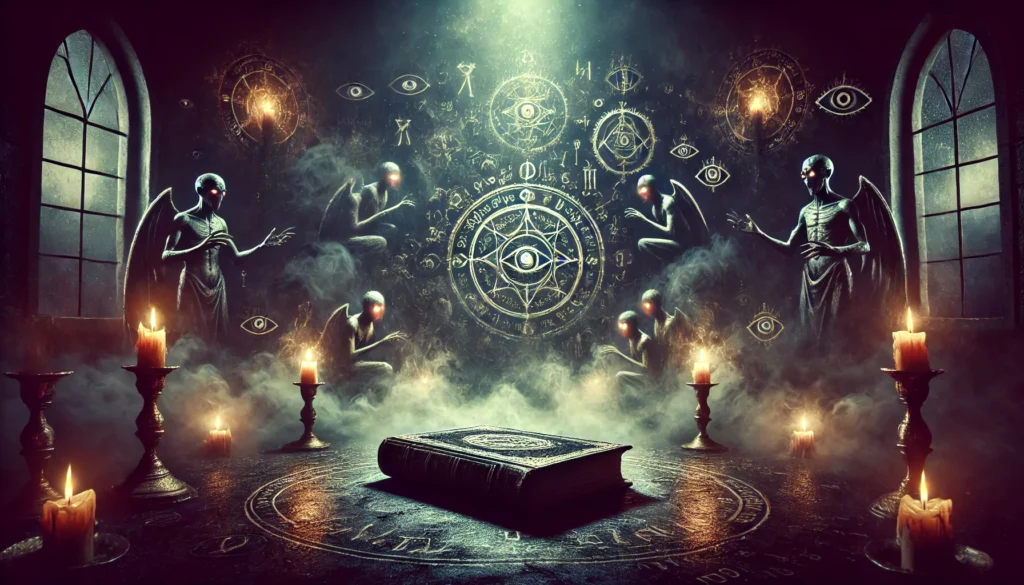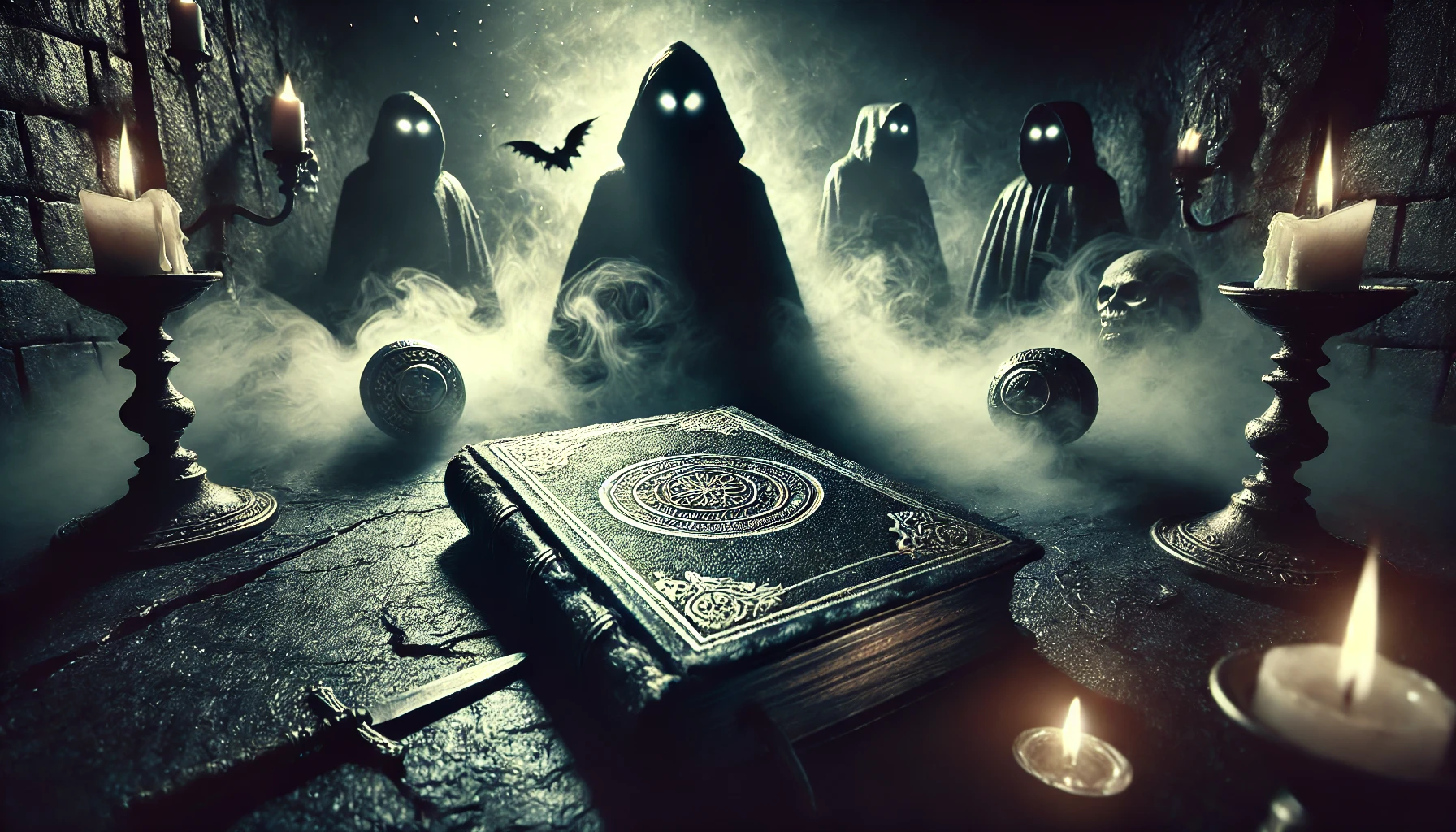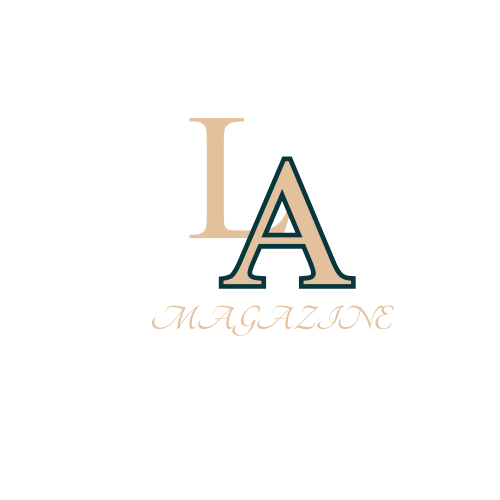Historical Context of the Book of Enoch
The Book of Enoch is believed to have been written between the 3rd century BCE and the 1st century CE. It is part of a collection of texts known as the Pseudepigrapha, which are ancient writings attributed to biblical figures but not considered divinely inspired or canonical by most religious traditions. The book is divided into several sections, including the Book of the Watchers, the Book of Parables, and the Astronomical Book, among others.
While the Book of Enoch was highly regarded by some early Jewish and Christian communities, it was ultimately excluded from the Hebrew Bible and the Protestant canon. The Ethiopian Orthodox Church is one of the few Christian traditions that are considered canonical. Its exclusion from most biblical canons raises questions about its authenticity and reliability.
Theological Concerns with the Book of Enoch
- Non-Canonical Status
The primary reason many advise staying away from the Book of Enoch is its non-canonical status. The process of canonization for both the Hebrew Bible and the Christian New Testament involved rigorous scrutiny of texts to ensure their divine inspiration, apostolic authority, and consistency with established scripture. The Book of Enoch did not meet these criteria for most religious traditions, leading to its exclusion. - Contradictions with Canonical Scripture
Some teachings in the Book of Enoch appear to contradict or go beyond the teachings found in the Bible. For example, the book elaborates on the story of the “Watchers” (fallen angels) and their interactions with humanity, which is only briefly mentioned in Genesis 6:1-4. These elaborations are not supported by other biblical texts and may lead to speculative or erroneous interpretations. - Emphasis on Esoteric and Apocalyptic Themes
The Book of Enoch contains detailed descriptions of apocalyptic visions, angelic hierarchies, and cosmological mysteries. While these themes may be intriguing, they can distract from the core messages of faith, repentance, and salvation found in canonical scripture. Overemphasis on such topics can lead to confusion or misguidance. - Potential for Misinterpretation
The Book of Enoch’s complex symbolism and speculative content make it susceptible to misinterpretation. Without proper historical and theological context, readers may draw incorrect conclusions or develop unorthodox beliefs. This is particularly concerning for individuals without a strong foundation in biblical teachings.
Potential Risks of Reading the Book of Enoch

- Undermining Biblical Authority
By elevating non-canonical texts like the Book of Enoch to the same level as scripture, readers risk undermining the authority of the Bible. This can lead to a fragmented understanding of God’s Word and a departure from sound doctrine. - Distraction from Core Teachings
The Book of Enoch’s focus on angelology, cosmology, and apocalypticism can divert attention from the central teachings of the Bible, such as the love of God, the sacrifice of Jesus Christ, and the call to live a righteous life. - Promotion of Heretical Ideas
Throughout history, certain groups and individuals have used the Book of Enoch to promote heretical or fringe beliefs. For example, some have used it to support ideas about extraterrestrial beings or to justify unorthodox practices. Engaging with such ideas can lead to spiritual confusion or deception.
Why Some Still Find Value in the Book of Enoch
Despite these concerns, some scholars and believers find value in the Book of Enoch as a historical and cultural document. It provides insight into the beliefs and worldviews of certain Jewish communities during the Second Temple period. Additionally, a few verses from the Book of Enoch are referenced in the New Testament (e.g., Jude 1:14-15), which has led some to argue for its significance.
However, even those who study the Book of Enoch for academic or historical purposes often caution against treating it as divinely inspired scripture. It is essential to approach the text with discernment and a clear understanding of its limitations.
FAQs About the Book of Enoch
1. Is the Book of Enoch part of the Bible?
No, the Book of Enoch is not part of the canonical Bible for most Jewish and Christian traditions. It is considered part of the Pseudepigrapha and is only canonical in the Ethiopian Orthodox Church.
2. Why is the Book of Enoch not in the Bible?
The Book of Enoch was excluded from the Bible because it did not meet the criteria for canonization, such as apostolic authority, consistency with other scriptures, and widespread acceptance among early religious communities.
3. Is the Book of Enoch mentioned in the Bible?
The Book of Enoch is referenced in Jude 1:14-15, where a prophecy attributed to Enoch is quoted. However, this does not imply that the entire book is divinely inspired or authoritative.
4. Can Christians read the Book of Enoch?
Christians can read the Book of Enoch, but it should be approached with caution and discernment. It is important to remember that it is not scripture and should not be used to form doctrinal beliefs.
5. What are the main themes of the Book of Enoch?
The Book of Enoch focuses on themes such as the fall of the Watchers (fallen angels), apocalyptic visions, the final judgment, and cosmological mysteries.
Conclusion
The Book of Enoch is a fascinating ancient text that offers insight into the beliefs and imaginations of certain Jewish communities during the Second Temple period. However, its non-canonical status, potential for misinterpretation, and theological concerns make it a text to approach with caution. For those seeking to deepen their understanding of God’s Word, it is advisable to focus on the canonical scriptures that have been universally recognized as divinely inspired and authoritative. By doing so, believers can avoid the pitfalls of speculative theology and remain grounded in the truth of the Bible




